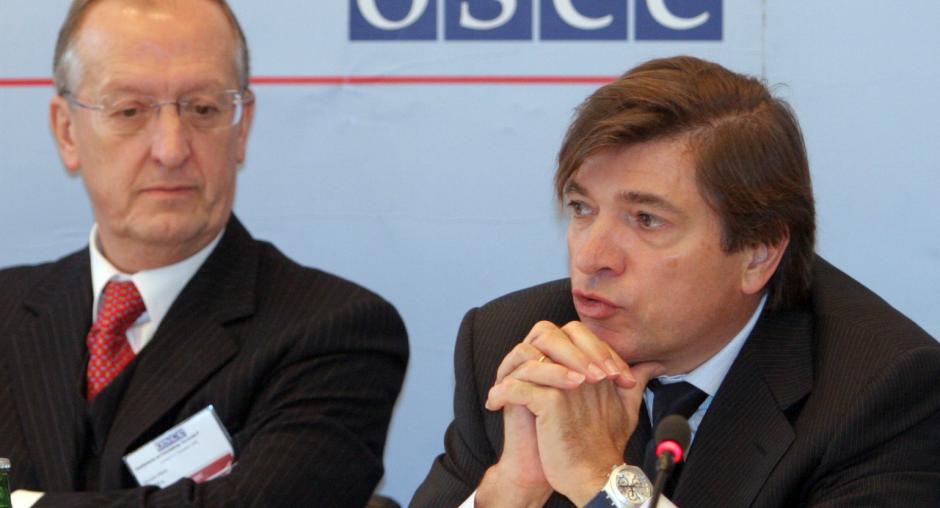OSCE conference participants call for "global network" to suppress terrorist financing

VIENNA, 9 November 2005 - High-level representatives from international organizations and OSCE States, attending an anti-terrorism financing conference in Vienna, called today for the building of a "global anti-terrorism network" to help suppress the flow of money to terrorists.
Ambassador Henry Crumpton, US Co-ordinator for Counter-terrorism, told journalists: "We want this conference to help states build transnational, complementary strategies to deal with terrorist financing. We face a long, complex war, fought on many levels, fought with many instruments of statecraft, and fought with growing transnational partnerships - as reflected in the OSCE.
"So far", he added, "over $150 million worth of terrorist assets has been frozen in bank accounts, and millions more blocked in transit or seized at borders."
Marc Baltes, Senior Adviser to the Co-ordinator of OSCE Economic and Environmental Activities, whose office organized the conference, said the OSCE expected the meeting, which runs until 11 November, to push the OSCE's anti-terrorist agenda a step further.
"An important outcome we hope will emerge from this conference is to see the 55 States of the OSCE not only signing and ratifying these conventions against terrorist financing, but also implementing them, setting up the right kinds of bodies to carry out various roles. Experts from all participating States will share lessons learned and discuss how to implement international standards on terrorist financing.
"The OSCE is, of course, ready to help countries which do experience difficulties in setting such a regulatory framework. For some states, especially states in transition, this can pose a considerable challenge, and we aim to assist them, together with our partners," he said.
Patrick Hardouin, Deputy Assistant Secretary General for Regional, Economic and Security Affairs at NATO, said that the OSCE conference and other such events were critical to confront the financing of terrorism and to help map terrorist networks.
"We must use political, diplomatic, and economic means to create a network of international organizations and states," he said. "Through this network, we must gather and exchange data on terrorist financing and develop relevant international financial standards".
Antonio Maria Costa, Executive Director of the UN Office on Drugs and Crime, pointed out that terrorists did not use the formal banking sector for moving money but now favoured large quantities of cash and drugs, in suitcases and even containers. "A container full of cocaine is of the same value as one full of used dollar bills", he said.
Over the next three days, the conference will examine issues such as drafting and amending legislation to combat terrorist financing, detecting and reporting suspicious transactions and refining investigative tools and techniques. The final day will look at how to prevent charities from being used illicitly to move terrorist money and improving government regulation and self-regulation mechanisms.
